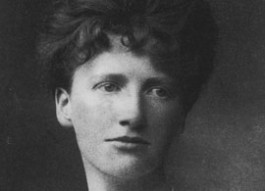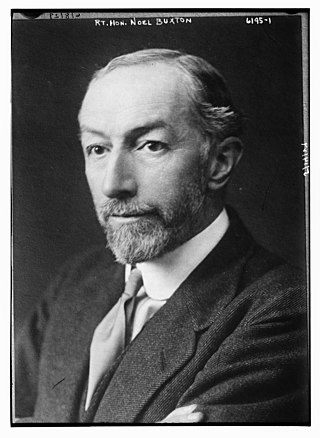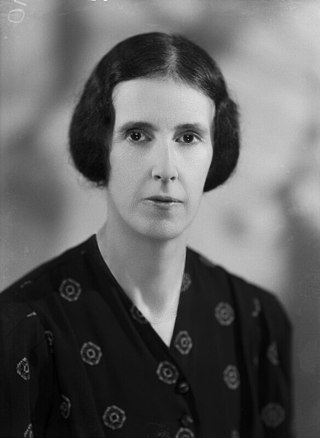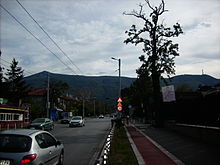
Philip John Noel-Baker, Baron Noel-Baker,, born Philip John Baker, was a British politician, diplomat, academic, athlete, and renowned campaigner for disarmament. He carried the British team flag and won a silver medal for the 1500m at the 1920 Summer Olympics in Antwerp, and received the Nobel Peace Prize in 1959.

Richard Jebb was an English journalist and author in the field of Empire and colonial nationalism.

Roden Berkeley Wriothesley Noel, also known as Noël, was an English poet. He was a Cambridge Apostle.

Conrad le Despenser Roden Noel was an English priest of the Church of England. Known as the 'Red Vicar' of Thaxted, he was a prominent Christian socialist.

Sir Thomas Fowell Buxton, 3rd Baronet,, commonly known as Sir Fowell Buxton, was the Governor of South Australia from 29 October 1895 until 29 March 1899. He was the grandson of Sir Thomas Fowell Buxton, a British MP and social reformer, and the son of Sir Edward North Buxton, also an MP.

Eglantyne Jebb was a British social reformer who founded the Save the Children organisation at the end of World War I to relieve the effects of famine in Austria-Hungary and Germany. She drafted the document that became the Declaration of the Rights of the Child.

Noel Edward Noel-Buxton, 1st Baron Noel-Buxton,, was a British Liberal and later Labour politician. He served as Minister of Agriculture and Fisheries under Ramsay MacDonald in 1924 and between 1929 and 1930.
Eglantyne Louisa Jebb was an Anglo-Irish social reformer. A keen supporter of the Arts and Crafts movement, in 1884 she founded the Home Arts and Industries Association as a way of reviving country crafts and overcoming rural poverty.

Hasan Tahsin was the code name of Osman Nevres, a Turkish nationalist, patriot, and journalist of Dönmeh descent.

Lucy Edith Noel-Buxton, Baroness Noel-Buxton, was a British Labour Party politician.
The 1908 Ashburton by-election was a by-election held in England on 17 January 1908 to elect a new Member of Parliament (MP) for the British House of Commons constituency of Ashburton in Devon.
Sir Thomas Fowell Victor Buxton, 4th Baronet, JP was a British aristocrat and philanthropist.
Percival Arland Ussher was an Anglo-Irish academic, essayist and translator.

Maurice Alexander, was a Canadian barrister and soldier who later moved to England and had careers in the Diplomatic Service, English law and politics.
Temuka was a parliamentary electorate in the Canterbury region of New Zealand from 1911 to 1946. The electorate was represented by four Members of Parliament.
Dorothy Frances Buxton was an English humanitarian, social activist and commentator on Germany.
The 1930 North Norfolk by-election was held on 9 July 1930. The by-election was held due to the elevation to the peerage of the incumbent Labour MP, Noel Buxton. It was held for the Labour Party by his wife, Lucy Noel-Buxton.
David Roden Buxton FSA was an entomologist and employee of the British Council. He is best known for his books on Russian architecture, the ancient churches of Ethiopia, and the wooden churches of Eastern Europe.
Lewis Bernard Golden was a British charity administrator and first general secretary of Save the Children Fund from 1920 to 1937.

Louisa Wilkins OBE, also known as Mrs Roland Wilkins was a British writer and agricultural administrator. She was involved in the creation and recruitment for the Women's Land Army during World War One. She was an enthusiast for small holdings and after the war she inspired the creation of a small holding co-operative for women who had entered agriculture during the war.












